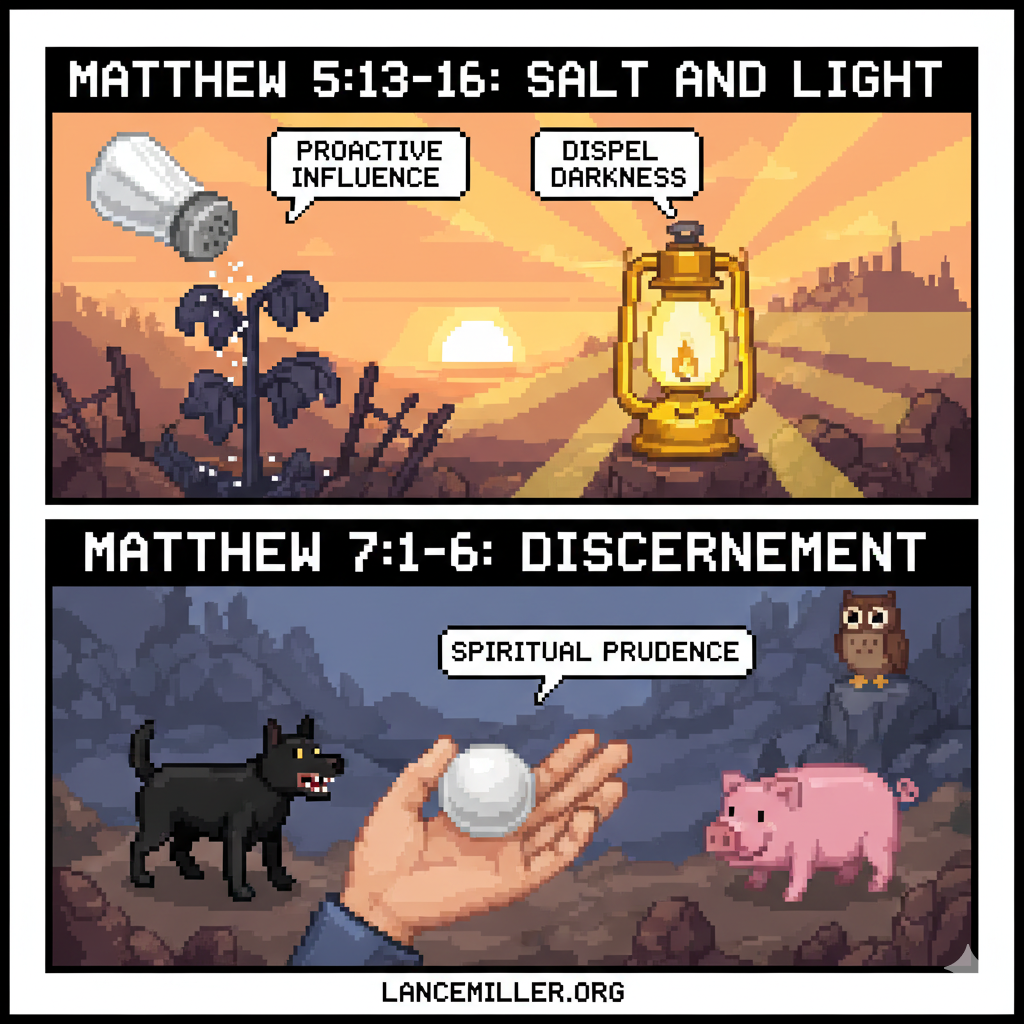The Duality of Discipleship: Action & Discernment
Analyzing the operational balance between active engagement (Matthew 5) and spiritual prudence (Matthew 7).
// PROTOCOL I: THE PRINCIPLE OF INFLUENCE
The character developed through the Beatitudes is the foundation for active engagement. Jesus’s followers must alter their environment; value is tied to transformative effect.
"If salt loses its saltiness, it is good for nothing."
Matthew 5:13 (Ref)
DIRECTIVE: SALT (PRESERVE & FLAVOR)
Proactive influence is required to prevent moral decay and add spiritual flavor to the cultural environment. Inaction is obsolescence.
"A city set on a hill cannot be hidden."
Matthew 5:14 (Ref)
DIRECTIVE: LIGHT (ILLUMINATE & GUIDE)
Visibility is mandatory. Outward projection of truth dispels darkness and provides directional clarity for others.
// PROTOCOL II: THE PRINCIPLE OF PRUDENCE
The instruction to "judge not" is not a ban on all evaluation. True engagement requires discerning wisdom—knowing when and where to apply the "salt and light."
"Why do you see the speck that is in your brother's eye, but do not notice the log that is in your own eye?"
Matthew 7:3 (ESV)
SYSTEM ALERT: HYPOCRITICAL JUDGMENT
Action Prohibited. Condemnation propelled by self-righteousness crushes others while ignoring internal systemic failures.
"Do not give what is holy to the dogs, nor throw your pearls before pigs..."
Matthew 7:6 (ESV)
DIRECTIVE: PROTECTIVE DISCERNMENT
Action Required. Wisely identify those hostile to the truth to protect the sacred from scorn and oneself from unnecessary attack.
// FINAL SYNTHESIS: MEASURED ENGAGEMENT
OPERATIONAL SUMMARY:
Discipleship is not passive. We must engage (Salt & Light), but we must do so with humility (rejecting hypocritical judgment) and prudence (protecting the sacred). The goal is the wise stewardship of transformative character.
